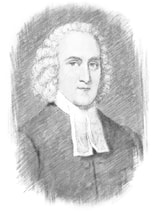John 13
|
John 13:1:
Now before the Feast of the Passover, Jesus knowing that His hour had come that He would depart out of this world to the Father, having loved His own who were in the world, He loved them to the end. |
"Unto the end" is the measure of the Saviours love. The word does not mean merely so long as He lived, but also in the highest degree, to the uttermost. It is not merely a measure of time, but a measure of the quality and passion of love. Many commentators prefer to used the words "He loved them unto the uttermost" rather than "unto the end"--so making them to express the depth and degree rather than the permanence and perpetuity of our Lords love.
|
It is key to His action of washing their feet, to give them a proof of His enduring love. It is the explanation of all His previous life and of His death He will soon accomplish. He was possessed and governed by love. If we do not see this, we see nothing and understand nothing. All that Jesus did and was, was the fruits of love. He had loved His own which were in the world, and now He loves them unto the end. When Jesus said on the cross "It is finished," His end of sacrifice was the carrying forward and culmination of all His grace.
|
John 13:1-20:
Now before the Feast of the Passover, when Jesus knew that his hour had come to depart out of this world to the Father, having loved his own who were in the world, he loved them to the end. 2 During supper, when the devil had already put it into the heart of Judas Iscariot, Simon's son, to betray him, 3 Jesus, knowing that the Father had given all things into his hands, and that he had come from God and was going back to God, 4 rose from supper. He laid aside his outer garments, and taking a towel, tied it around his waist. 5 Then he poured water into a basin and began to wash the disciples' feet and to wipe them with the towel that was wrapped around him. 6 He came to Simon Peter, who said to him, “Lord, do you wash my feet?” 7 Jesus answered him, “What I am doing you do not understand now, but afterward you will understand.” 8 Peter said to him, “You shall never wash my feet.” Jesus answered him, “If I do not wash you, you have no share with me.” 9 Simon Peter said to him, “Lord, not my feet only but also my hands and my head!” 10 Jesus said to him, “The one who has bathed does not need to wash, except for his feet, but is completely clean. And you are clean, but not every one of you.” 11 For he knew who was to betray him; that was why he said, “Not all of you are clean.” 12 When he had washed their feet and put on his outer garments and resumed his place, he said to them, “Do you understand what I have done to you? 13 You call me Teacher and Lord, and you are right, for so I am. 14 If I then, your Lord and Teacher, have washed your feet, you also ought to wash one another's feet. 15 For I have given you an example, that you also should do just as I have done to you. 16 Truly, truly, I say to you, a servant is not greater than his master, nor is a messenger greater than the one who sent him. |
|
|
John 13: 34-35:
A new commandment I give to you, that you love one another: just as I have loved you, you also are to love one another. By this all people will know that you are my disciples, if you have love for one another. |

Feb 21, 2022: Already Not Yet:What Does a Committed Church Member Look Like?
Our Lord Jesus specified one defining mark for his disciples. Of course, there are many marks of true discipleship, but one mark is singled out as signifying to the watching world that we belong to Christ: A new commandment I give you, that you love one another: just as I have loved you, you also are to love one another. By this all people will know that you are my disciples, if you have love for one another. (John 13:34–35) |
The law had also already taught some points of this duty. Thus the Mosaic statute said, "Thou shalt not suffer sin upon thy brother," --a mode of brother-love which, though negative in its form, was positive in its spirit. But in its expressiveness and comprehensiveness this command was new. It was now given direct phraseology, and it developed the one principle to which all preceding enactments were to be traced. Incidental injunctions had contained some one or other of the features of this brother love; but all such commands were absorbed in this novel and engrossing declaration, "Love one Another." Various elements has previously delineated but now, and for the first time, the theory was enforced.
|
"As I loved you" points to an action which is past and done. It implies that Christ's work is now finished. And now we should love one another. In fact, it is because of that finished work that we can love one another.
"It is well." said John Wesley, "that you should be thoroughly sensible of this: Heaven of heavens is Love, there is nothing higher in religion, there is in effect nothing else. If you look for anything but more Love, you are looking wide of the mark: you are getting out of the royal way." |
Brotherly love is to be openly shown that the followers of Christ will be recognized thereby. His followers are not to be known by dress, language, or occupation etc, but by the mutual kindness which they cherish and exercise towards one another. Chrysostom was quoted as saying "Miracles do not so much attract the heathen as the mode of life; and nothing so much causes a right life as love..."
Our Lord discards the external and His followers are known not by dress, language, or occupation, but by the mutual kindness which they cherish and exercise towards one another. They are to be known not by mind, but by heart; not by intellect but by soul. |
| --Stephen T Davis [Rational Faith] |

Francis Schaeffer proposed two powerful things we can do, to display observable love for one another in response to these verses and also John 17:23:
One, “When I have failed to love my Christian brother, I go to him and say, ‘I’m sorry.’ That is first. It may seem a letdown — that the first thing we speak of should be so simple. But if you think it is easy, you have never tried to practice it. . . .”
Two, “There must also be open forgiveness. And though it’s hard to say ‘I’m sorry,’ it’s even harder to forgive. The Bible, however, makes plain that the world must observe a forgiving spirit in the midst of God’s people. . . .”
“[Does the world] observe that we say ‘I’m sorry,’ and do they observe a forgiving heart? Let me repeat: Our love will not be perfect, but it must be substantial enough for the world to be able to observe it, or it does not fit into the structure of John 13 and 17. And if the world does not observe this among true Christians, the world has a right to make the two awful judgments which these verses indicate: that we are not Christians, and that Christ was not sent by the Father.”
Francis Schaeffer, “The Mark of the Christian,” in The Church at the End of the Twentieth Century (Downers Grove, 1970), pages 143-146.
One, “When I have failed to love my Christian brother, I go to him and say, ‘I’m sorry.’ That is first. It may seem a letdown — that the first thing we speak of should be so simple. But if you think it is easy, you have never tried to practice it. . . .”
Two, “There must also be open forgiveness. And though it’s hard to say ‘I’m sorry,’ it’s even harder to forgive. The Bible, however, makes plain that the world must observe a forgiving spirit in the midst of God’s people. . . .”
“[Does the world] observe that we say ‘I’m sorry,’ and do they observe a forgiving heart? Let me repeat: Our love will not be perfect, but it must be substantial enough for the world to be able to observe it, or it does not fit into the structure of John 13 and 17. And if the world does not observe this among true Christians, the world has a right to make the two awful judgments which these verses indicate: that we are not Christians, and that Christ was not sent by the Father.”
Francis Schaeffer, “The Mark of the Christian,” in The Church at the End of the Twentieth Century (Downers Grove, 1970), pages 143-146.
|
John 13: 36-38:
Simon Peter asked him, "Lord, where are you going?" Jesus replied, "Where I am going, you cannot follow now, but you will follow later." Peter asked, "Lord, why can't I follow you now? I will lay down my life for you." Then Jesus answered, "Will you really lay down your life for me? I tell you the truth, before the rooster crows, you will disown me three times! |
Jesus had stated that where he is going the disciples will not at present be able to follow. Peter makes a hasty statement that he is willing to die—to”lay down his life” (verse 37). The words Peter uses, thVn yuchvn mou uJpeVr sou' qhvsw, are almost identical to those used by Jesus in 10:11 when he spoke as the Good Shepherd. Ironically, Peter is not yet ready to follow this path on behalf of his Lord, although one day he will be (u{steron, compare 21:18). Instead, before this can happen, Peter will deny Jesus three times, as Jesus tells him. The fulfillment of this prediction is recorded in 18:27. Furthermore, also ironically, it is not Peter who is about to die for Jesus, but Jesus who is about to die for Peter, as the reader of the Gospel well knows. Peter did not wait on God; and instead in his mind forecast where the test would come, and the test came where he did not expect it. Peters declaration was honest, but ignorant. Jesus' response to Peter showed he had a deeper understanding of Peter than Peter had of himself. Natural devotion may serve to attract us to Jesus, but it will never make us disciples. Natural devotion will always deny Jesus at some point.
|








